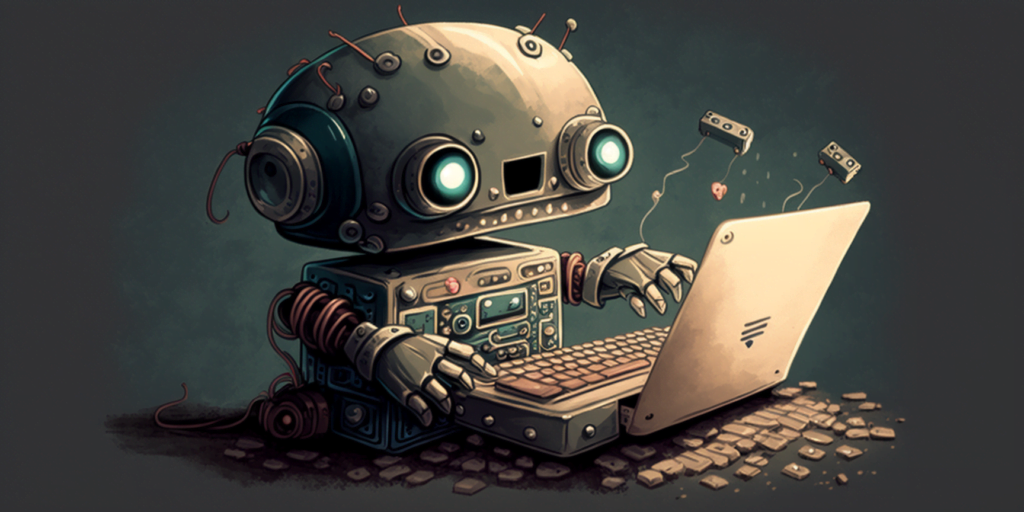
According to a research paper released today by ChatGPT maker OpenAI and the University of Pennsylvania, the more high-level and creative your job, the more likely it will be to be disrupted by artificial intelligence.
In particular, writers and authors are at the top of the list, with up to 100 percent of their jobs likely to be affected by AI.
Other occupations in the 100 percent category? Mathematicians, journalists, tax preparers, web designers, accountants, auditors, and administrative assistants.
Okay, my day job is as a technology journalist. My degree — and potential backup career — is in mathematics. And my aspiration is to become a full-time science fiction author. So this sucks.
If you continue reading the paper, jobs that involve editing text are also at risk.
If you, like me, are a human with a job, you might want to take a close look at the paper. Yes, it’s a dense PDF with lots of technical data and plenty of fine print. But you can ask ChatGPT to help you out with it.
Now, the regular ChatGPT doesn’t have access to the web.
But Bing AI does. You will have to use the Edge browser to get to Bing AI. I actually had to hunt around on my Windows machine before I could find it — I haven’t used Edge since the day when I unpacked my PC, and the only reason I used Edge was to download Chrome.
According to researchers, 80 percent of workers belong to an occupation that has at least one task that can be done by AI. And a fifth of all workers are in occupations where half their typical job tasks can be done by AI.
The optimistic view is that employers will use AI to handle those tasks, then let the human spend more time on the tasks that only they can do, making them more effective at their job, and keep their existing staffing levels.
The pessimistic view is that employers will make one person do more work, and cut jobs.
Especially because the higher-paid the job, the more of it AIs will be able to do.
“These technologies can have pervasive impacts across a wide swath of occupations in the US,” the paper’s authors wrote. “As capabilities continue to evolve, the impact of GPTs on the economy will likely persist and increase, posing challenges for policymakers in predicting and regulating their trajectory.”
The paper also ranked industries by their total exposure, and publishing among the top five affected, along with industries like insurance and data processing services.
If you page through the paper and go down to the appendixes, you’ll find that Appendix E, down on page 30, lists occupations without any exposed tasks at all. These are jobs like agricultural equipment operators, athletes, short order cooks, stonemasons, and motorcycle mechanics.
For me, the most frightening thing — after the fact that everything I do is at risk, of course — is how fast everything is moving.
Just when you think that ChatGPT can’t do a particular thing, a startup comes out with a tool that makes it do that thing. Then, Microsoft and Google announce that they’ll be adding it as a feature to their existing platforms. For example, last week, Microsoft and Google both explained how they’ll be incorporating AI into their Office 365 and Google Workspace platforms and showed off demos of this technology at work.
That means that it’s incredibly difficult trying to keep up with the AI in order to figure out how you can coexist with it — and maybe have some hopes of surviving. Just when I find something it can’t do — or learn how to do something with it — everything changes.
I lived through the dot-com boom — I was covering it for Computerworld. I remember attending all the tech conferences, talking to all the vendors. There was a little bit of panic, especially on the part of traditional, paper-based publishers like the companies I was working for. But compared to today, the pace of change was glacially slow.
It took the telephone 75 years to reach 100 million users. Mobile phones took 16 years. The World Wide Web took seven years. ChatGPT took just two months.
Edited by Melody Friedenthal
MetaStellar editor and publisher Maria Korolov is a science fiction novelist, writing stories set in a future virtual world. And, during the day, she is an award-winning freelance technology journalist who covers artificial intelligence, cybersecurity and enterprise virtual reality. See her Amazon author page here and follow her on Twitter, Facebook, or LinkedIn, and check out her latest videos on the Maria Korolov YouTube channel. Email her at [email protected]. She is also the editor and publisher of Hypergrid Business, one of the top global sites covering virtual reality.

